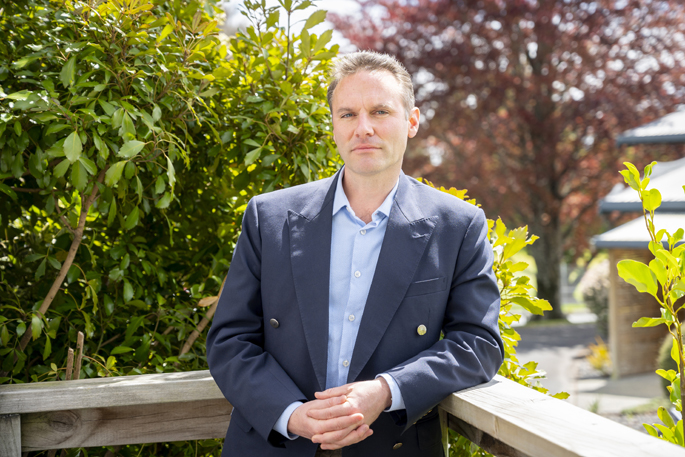Concerns from the community about water fluoridation have led the Western Bay of Plenty District Council to seek an exemption from the mandate.
Manatū Hauora - Ministry of Health has directed the council to fluoridate two of its eight water supplies, Athenree and Wharawhara, by July 31, 2025.
Those water supplies cover Waihī Beach, Athenree, Tanners Point, Katikati and the reticulated rural area through to Morton Road.
Mayor James Denyer has written to the ministry seeking the exemption. Local Democracy Reporting obtained a copy of the letter.
“Through our public consultation on our Annual Plan 2023/24 we received feedback regarding the Ministry’s direction to fluoridate those two water supplies,” it reads.
“These concerns included the ethics of medication without consent, the unfunded nature of the mandate, concerns around the safety aspects of fluoridation, and the lack of equity in the requirement for council to fluoridate some but not all our water supplies.”
The council received 12 submissions opposed to fluoridation during the 2023/24 Annual Plan consultation. It received 310 submissions in total.
The decision was made to seek the exemption at the council’s annual plan deliberations in June. The councillors voted 10 in favour with two against.
 Mayor James Denyer has written to the Ministry of Health seeking an exemption from the fluoridation mandate. Photo: Brydie Thompson/SunLive.
Mayor James Denyer has written to the Ministry of Health seeking an exemption from the fluoridation mandate. Photo: Brydie Thompson/SunLive.
Denyer told LDR: “One of the reasons that I initially had reservations about doing the fluoridation, is it's just yet another unfunded mandate from government.”
The ministry would fund the cost of setting up the fluoridation infrastructure but not the ongoing yearly costs.
Council water services director EJ Wentzel says the cost of introducing fluoride to the Athenree supply would be $923,962 with the ongoing management and monitoring estimated to be $55,148 per annum.
For the Wharawhara supply the setup cost would be $938,587 with ongoing costs estimated at $55,193 each year.
The letter also asked the ministry to advise if an exemption was possible and invited the ministry to come and speak with the council.
This was “to help address the concerns raised by our community and provide information as to why the Athenree and Wharawhara water supplies were chosen specifically, along with the rationale for and safe use of fluoridation in general.”
Members of the organisation Fluoride Free NZ have spoken in public forums at community board meetings around the district. A crowd of around 60 people also packed the public gallery of a council meeting in July.
Four speakers expressed their concerns about the fluoridation directive and urged the council to seek an injunction.
 Fluoride Free NZ member Kane Titchener speaking at the Waihī Beach Community Board. Photo: Alisha Evans/SunLive.
Fluoride Free NZ member Kane Titchener speaking at the Waihī Beach Community Board. Photo: Alisha Evans/SunLive.
Fluoride Free NZ member Kane Titchener claimed “prenatal and early life exposures [to fluoride] can reduce IQ,” based on review by the United States National Toxicology Program.
“It's my request to this council to join that injunction. You do actually have a choice here, so please don't think you don't have a choice. The community knows you've got a choice,” said Titchener.
Denyer told the crowd decisions like that couldn’t be made in a public form and informed them the letter seeking the exemption had been sent.
A Manatū Hauora spokesperson says the ministry is in discussions with the council about the fluoride directive.
Asked if an injunction was possible, the spokesperson replied: “Injunctions are discretionary orders, so it is always up to a court whether an injunction is available in a particular case.”
On the claim that “fluoride lowers IQ”, they say: “Extensive research carried out around the world, including in Aotearoa New Zealand, has established that community water fluoridation is safe and effective.”
They referenced the 2021 report Fluoridation: an update on evidence, from the Office of the Prime Minister’s Chief Science Advisor (OPMCSA) and the earlier 2014 report by the Royal Society Te Apārangi and OPMCSA.
“The report concluded that there are no adverse health effects of any significance arising from fluoridation at the levels used in New Zealand.”
When water is fluoridated in New Zealand it involves adding fluoride to reach levels between 0.7 and 1.0 mg/L.
The council also faces fines for not complying with the directive. Under the Health Act 1956, non-compliance with a Director-General of Health direction to fluoridate can result in a fine not exceeding $200,000 and if the non-compliance is on-going a fine of $10,000 per day that the non-compliance continues.
Public Interest Journalism funded through NZ On Air.




2 comments
Just read "Safe and Effective"
Posted on 25-08-2023 08:18 | By an_alias
Gosh, anyone heard that before?
Its safe and effective, look here's our govt funded research, we are your only source of truth.
1984, here we are....
The misguided are harming the vulnerable
Posted on 26-08-2023 02:56 | By Bill Murioti
Sixty people who are not well informed are pressuring their community not to benefit from a a standard public health measure. The arrogance of misinformed people means that many people in Western BOP will have pain and suffering that could have been avoided. The idea that fluoridation is too expensive for the community is nonsense. The members will pay one way or another - they will pay the small costs of fluoride for a year in their taxes or in the dental treatment or the pain and infection because they could not afford dental treatment. The noisemakers might be able to afford dental treatment but not everyone can. This misguided noise is cruel.
Leave a Comment
You must be logged in to make a comment.